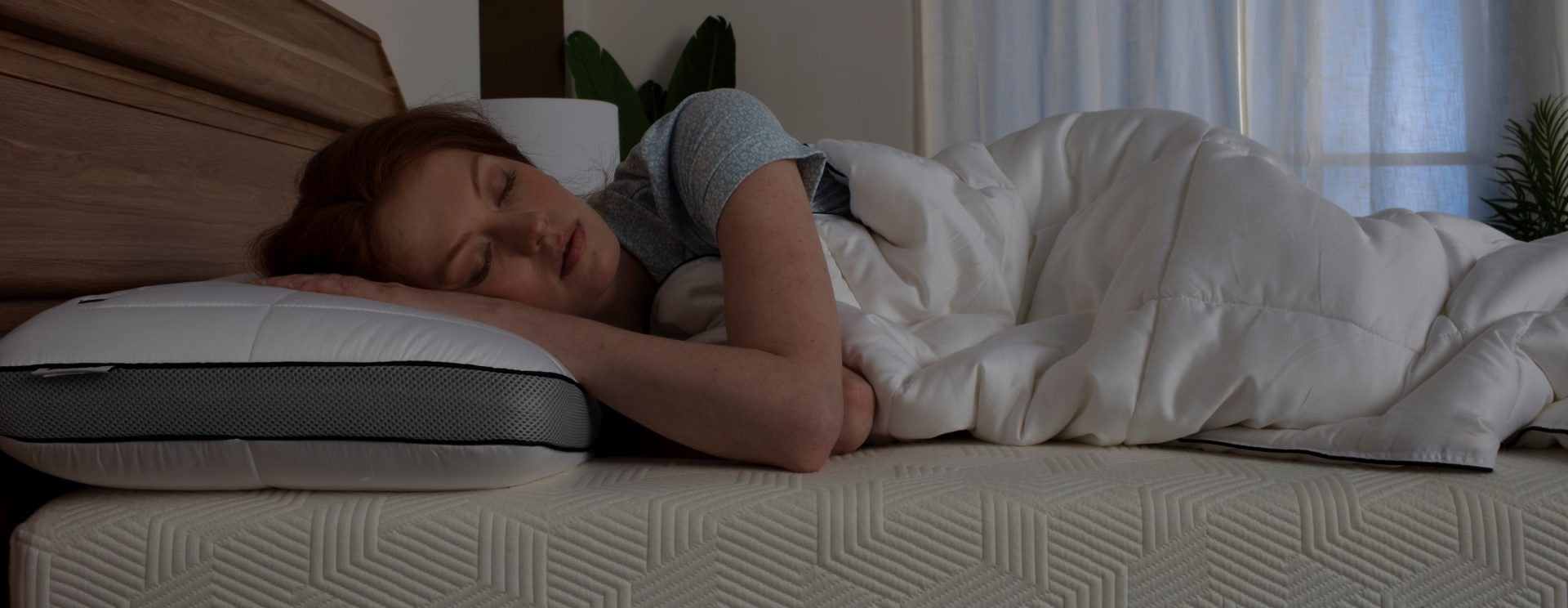What is Sleep Training for Adults and Does It Work?
Last updated on January 22nd, 2024 at 11:10 am
Sleep is a crucial component of our overall well-being, impacting our physical health, mental clarity, and emotional well-being. However, many adults struggle with sleep issues that negatively affect their quality of life. Enter adult sleep training, a concept gaining popularity as a means to improve sleep. Let’s explore the concept of adult sleep training, explore the science behind it, and see some success stories. If you’ve been longing for better sleep, read on to discover whether adult sleep coaching could be the solution you’ve been searching for.
Understanding adult sleep training
Adult sleep training refers to the process of implementing strategies and techniques to improve sleep quality and establish healthy habits. It involves consciously modifying behaviours, routines, and sleep environments to promote better sleep. While sleep training is often associated with infants, its application to adults has gained recognition in recent years – anybody who struggles with shut-eye might choose to undergo some form of sleep training. There’s no shame in it; sleep training benefits are a great way to improve your sleep and life.

There are many reasons why adults might struggle to sleep; you may be particularly stressed or overwhelmed or suffering from an ongoing illness or injury disrupting your sleep. Insomnia, sleep apnea, anxiety… the reasons are plentiful! Improving adult sleep patterns can be difficult, but it’s worth it.
The science behind sleep training
To understand training, it’s important to grasp the science behind sleep itself. Our internal body clock, known as the circadian rhythm, regulates it, which determines our sleep-wake cycle. Disruptions to this rhythm, such as irregular sleeping patterns or external factors like stress, can lead to insomnia, disrupted sleep, or poor quality. Sleep hygiene (which refers to healthy habits, routines, and behaviour) is also important. The therapy for adults aims to recalibrate this internal clock and establish better hygiene, leading to healthy patterns.
Different approaches to adult sleep training
Various adult training techniques are tailored to individual needs and preferences. Some methods focus on improving sleep schedules, creating a soothing bedtime routine, and optimising the environment – these are known as behavioural sleep training techniques. Other approaches involve cognitive-behavioural therapy techniques to address underlying factors contributing to sleep disturbances, such as stress, anxiety, or negative sleep associations. And finally, relaxation-based approaches: simply encouraging you to relax more and wind down properly in the lead-up to sleep by reducing screen time, doing things that calm you, and trying to free your mind of stress before you drift off.
It is important to understand that not all training methods for grown-ups work for every person – this is why personalised plans are vital because it’s all about you and the issues you personally are having.
Does adult sleep training work?
The effectiveness of this training largely depends on individual circumstances and commitment. While some individuals may experience immediate improvements in their sleep, others may require more time and persistence – it can take a while to come to fruition. Research supports the efficacy of sleep training techniques in improving the quality and reducing sleep disturbances for many individuals.
However, it’s important to note that results can vary and it’s not necessarily an overnight fix (see what we did there?).
While there is not currently a lot of clinical data on sleep training effectiveness in adults, you can read some individual success stories below. There is, however, some clinical evidence around Intensive Sleep Re-Training (known as ISR), which is where the straining takes place over a short 24-hour period:
The results of the first two clinical studies using ISR have been consistently impressive. Following the ISR treatment, sleep diaries averaged weekly showed that sleep onset latencies were reduced by 24–30 min (38% and 44% reduction from baseline, respectively) and total sleep time increased by 34–60 min. Furthermore, daytime fatigue and other impairments were significantly reduced.
This training for adults does work, and it is important to try and improve your sleep as there are so many benefits to getting the right amount of rest: you’ll feel happier, be more productive, and see an overall improvement in your health.
Tips for successful adult sleep training
For training to succeed, you must be patient and consistent. Don’t give up if it doesn’t work immediately – keep going with it, and listen to what sleep expert individuals have to say. Look at ways to improve your sleep hygiene, understand the importance of a routine, and do everything possible to minimise stress that might be preventing sleep.
If sleep really is elusive, and it goes on for too long with no signs of improvement, consider consulting healthcare professionals. They can offer more in-depth and personalised advice to help you fall asleep at night.
Success stories
There are plenty of individual sleep training success stories on the internet, from people who have tried sleep training via courses, books and more.
I could fall asleep easily but would wake 3-4 times a night and sometimes the wakings would last hours. I thought that I was just a bad sleeper. I figured I would give it a try because “why not?” BEST DECISION EVER! I’m now a 7-8 hour sleeper every night and feel so much more rested. I finally have the energy I need for my kids too.
I’m waking up way fewer times by the end of the week. Most days, I still wake at 5.30am, then go straight back to sleep for an hour. I do the sleep efficiency calculation again: it’s gone up to 90%. I feel more refreshed when I wake up. It’s working! Two weeks on, and I’m still finding it a huge relief to know it’s fine for me to stay up – the new calm evenings have become a treat.
You’ll find plenty more online, too!
Make bedtime perfect
Shop our Memory Foam Pillow
Challenges and considerations
There are common misconceptions that sleep training is only for babies and little ones – and while it’s important for them, it’s equally as important for adults to train themselves to sleep better if it’s an area of life that has recently been a struggle. As with anything in life, sometimes we just need some support and advice to help us get better at something. But it might not be without challenges; you might find yourself embarrassed to ask for help, for example, but there is nothing to be ashamed of. And of course, it can be frustrating if it doesn’t work particularly quickly. Again, patience is key to success here.
Sleep training for adults
If sleep is a challenge for you, then you might consider trying this type of training – whether that be a course you pay for, some free online training, a book, a podcast, or simply giving it a go yourself by establishing a better bedtime routine and trying to relax more before you sleep. It is definitely something worth considering because a good night’s sleep is so important.
Explore our range:
Bamboo Mattress Topper
Rated 4.97 out of 5£99.95 – £199.95Memory Foam Bamboo Pillow
Rated 4.96 out of 5£44.95100% Bamboo Bedding
Rated 5 out of 5£19.95 – £180.00Bamboo Mattress Protector
Rated 5.00 out of 5£19.95 – £50.00





